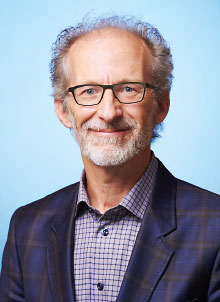Psychiatry Match Numbers Increase for 11th Straight Year
Abstract
Educators say there are likely multiple reasons for the rising interest in psychiatry over a decade. But the pandemic and heightened attention to social determinants of health have dramatically raised the profile of mental health more recently.
A total of 1,640 U.S. senior medical school graduates—1,253 from allopathic and 387 from osteopathic schools—matched into psychiatry residencies during this year’s National Resident Matching Program (NRMP) in March. That’s up from 1,537 last year.

Additionally, 321 international medical graduates and 69 other applicants (allopathic and osteopathic graduates from a previous year) also matched into psychiatry, bringing the total to 2,030 medical school graduates. Just 17 psychiatry positions went unfilled.
The annual match, in which the program choices of graduating medical students are paired with those of residency programs seeking trainees, is typically watched as an indicator of workforce size and makeup of the various medical specialties for the coming years.
Psychiatry’s numbers have been increasing yearly since 2011. Former APA Trustee Sidney Weissman, M.D., a past president of the American Association of Directors of Psychiatric Residency Training (AADPRT), noted that since 2011, the number of senior allopathic medical school graduates selecting psychiatry has nearly doubled from 640 (4.1%) of 15,588 graduates to 1,253 (6.1%) of 18,486 in 2022. The number of psychiatry residency programs increased from 183 in 2011 to 352 in 2022. Leaders in education said there are likely multiple reasons for the rising interest in psychiatry over the past decade—including the increase in residency slots generally. But they agree the pandemic and heightened attention to social determinants of health have dramatically raised the profile of mental health.

“Psychiatry offers opportunities for population-based care; advocacy about the social determinants of health; and a vigorous, diverse workforce.” —Richard Summers, M.D.
“Psychiatry continues to be a hot field of choice, but for new and compelling reasons,” said Richard Summers, M.D., APA treasurer and past chair of APA’s Council on Medical Education and Lifelong Learning. “The pandemic has demonstrated the fragility of our nation’s mental health and the painful need for new and better services. Medical school grads are answering this call and committing to our field because of its focus on the social determinants of health, population-based interventions, and embrace of diversity and inclusion.”
Comparing psychiatry with the longtime popularity of dermatology, Summers said, “Psychiatry is the new ‘derm’ for mission-driven medical students who see that psychiatry offers opportunities for population-based care; advocacy about the social determinants of health; and a vigorous, diverse workforce.”
Sallie De Golia, M.D., M.P.H., president of AADPRT and associate director of adult psychiatry residency training at Stanford University, said the need for mental health care has “skyrocketed” during the pandemic. “The stresses of uncertainty, isolation, loss of incomes, and caring for family and friends through illness and death have taken a tremendous toll on our societies,” she told Psychiatric News. “This is compounded by the fact we face a significant psychiatric workforce shortage.”
She said medical students are aware of this and likely are attracted to a field where the need is great and job security is dependable.
“The pandemic has clearly revealed the social factors that contribute to poor health,” De Golia said. “Psychiatry is a field that views health in the broadest way, through the biopsychosocial and cultural understanding of our patients. With an increasing awareness of social determinants of health, medical students may be drawn to a psychiatric perspective of care. Psychiatry is one of the few fields where providers are required to really know their patients in depth and—for the most part—still have the time to do that, while other specialties seem to increasingly squeeze their practitioners’ time with patients.”
According to the NRMP, there were 47,675 applicants registered in the 2022 main residency match, a decrease of 2.1 percentage points from last year. While the number of U.S. allopathic and osteopathic seniors increased (78 and 234, respectively) to all-time highs, there were 1,433 fewer U.S. citizen and non-U.S. citizen international medical graduates who registered for the match.
The NRMP is sponsored by the American Board of Medical Specialties, the AMA, the Association of American Medical Colleges, the American Hospital Association, and the Council of Medical Specialty Societies.
“Psychiatry is one of the most exciting fields in medicine, with enormous advances being made in how genetics and neuroscience interact with the environment to influence behavior,” said APA CEO and Medical Director Saul Levin, M.D., M.P.A. “On top of that, we have an expanding array of effective treatments for mental illness. So it is no wonder that medical school graduates have been choosing to enter psychiatry in increasing numbers for more than a decade.” He welcomed the incoming class of psychiatry trainees and urged them to join APA and visit the APA website page for residents and fellows. “Our trainees are our future.” ■



